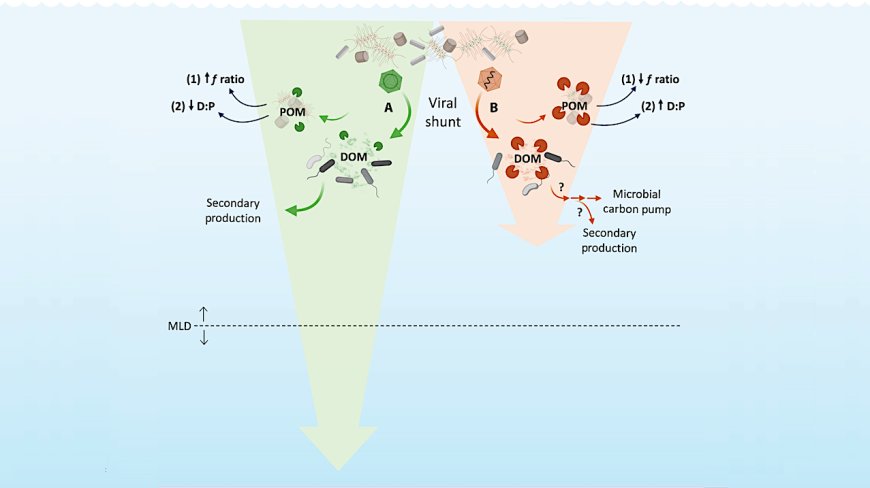Study Reveals RNA Viruses Influence Carbon Recycling in the Ocean
A recent study by Bar-Ilan University and Rutgers University shows that RNA viruses infecting phytoplankton in the ocean can disrupt carbon and nutrient recycling, potentially impacting the global carbon cycle. The research found that RNA virus infections hinder the breakdown of organic matter, affecting how carbon sinks into the deep ocean and influences climate patterns.

A new study by researchers at Bar-Ilan University has found that certain ocean viruses, specifically RNA viruses, may disrupt the recycling of carbon and nutrients in the ocean, potentially affecting the global carbon cycle.
The study, in collaboration with Rutgers University, focuses on viruses that infect microscopic algae called phytoplankton, crucial for oxygen production and carbon dioxide absorption. When these phytoplankton are infected by viruses, they release dissolved organic matter (DOM) into the seawater, serving as food for marine bacteria that recycle carbon and nutrients.
However, the research published in Science Advances reveals that RNA and DNA viruses have different effects. While DNA virus infections support bacterial growth, RNA virus infections make recycling more challenging, requiring bacteria to expend more energy.
These changes could impact how much organic carbon sinks into the deep ocean, affecting global climate patterns. Lead author Dr. Chana Kranzler from Bar-Ilan University explains that viral infections alter carbon movement in the ocean, potentially reshaping carbon recycling and storage in the deep ocean.
With millions of viruses in every drop of seawater, this study highlights the complexity of oceanic climate regulation. Understanding the ecological roles of RNA and DNA viruses is crucial for comprehending their impact on climate regulation.
This study paves the way for further research on how phytoplankton and viruses influence the ocean's biogeochemical cycles and, consequently, Earth's climate.
According to the source: astrobiology.com.
What's Your Reaction?
 Like
0
Like
0
 Dislike
0
Dislike
0
 Love
0
Love
0
 Funny
0
Funny
0
 Angry
0
Angry
0
 Sad
0
Sad
0
 Wow
0
Wow
0





















































































































































































